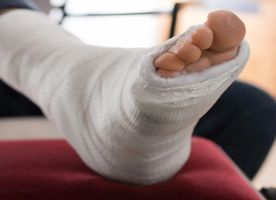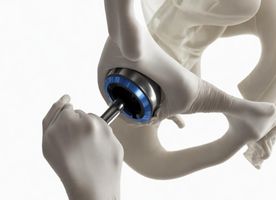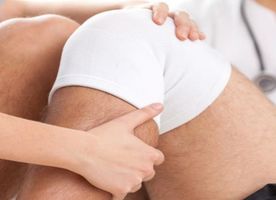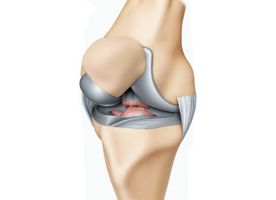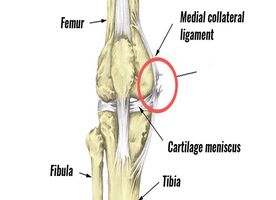Knee Replacement in South Korea
Search and Compare the Best Clinics and Doctors at the Lowest Prices for Knee Replacement in South Korea






Knee Replacement at Gachon University Gil Medical Center in Incheon, South Korea





Knee Replacement at Incheon St. Mary's Hospital in Incheon, South Korea





Knee Replacement at Samsung Medical Center in Seoul, South Korea





Knee Replacement at Dongguk University Ilsan Medical Center in Ilsan, South Korea





Knee Replacement at Inje University Ilsan Paik Hospital in Goyang, South Korea





Knee Replacement at Wonkwang University Hospital in Iksan, South Korea





Knee Replacement at Gangnam Severance Hospital in Seoul, South Korea



Knee Replacement at CNU Hwasun Hospital in Bundang, South Korea





Knee Replacement at Itaewon Wellness Chiropractic Sports Medicine Center in Seoul in Seoul, South Korea





Knee Replacement at Chung-Ang University Hospital in Seoul, South Korea





Knee Replacement at Sun Medical Center in Daejeon, South Korea





Knee Replacement at Nanoori hospital in Seoul, South Korea





Knee Replacement at Hanyang University Medical Center in Seoul, South Korea





Knee Replacement at KUIMS in Seoul, South Korea





Knee Replacement at Cheil General Hospital & Women's Healthcare Center in Seoul, South Korea





Knee Replacement at Kyung Hee University Hospital in Seoul, South Korea





Knee Replacement at Seoul National University Hospital in Seoul, South Korea





Knee Replacement at Severance Hospital in Seoul, South Korea





Knee Replacement at Asan Medical Center in Seoul, South Korea





Knee Replacement at Wooridul Spine Hospital in Seoul, South Korea
Our partner clinics in are accredited by the following associations



































































































































No Time?
Tell us what you're looking for and we'll reach out to the top clinics all at once
WHY US?



































































































































No Time?
Tell us what you're looking for and we'll reach out to the top clinics all at once
What does a Knee Replacement Procedure Involve?
The front of the knee joint is exposed by detaching a portion of the patellar tendon. This makes the patella visible which is displaced to one side. In this way, the distal end of the femur and the proximal end of the tibia become visible. Cutting guides are used to cut the bones in the appropriate shape and size. Cartilages and anterior cruciate ligaments are ligated. The posterior cruciate ligament might also be removed depending on the type of surgery. While fibular and tibial collateral ligaments are conserved anyway. After this, artificial metallic components are surgically implanted at the joint. A substance called polymethylmethacrylate (PMMA) cement is used to fix the metallic parts at the exact place. Besides this cement, porous metal prostheses and Osseointegration methods can also be used.
How Long Should I Stay in South Korea for a Knee Replacement Procedure?
This is a 1 to 3-hour procedure after which you have to stay at the hospital for 1 to 4 days. You may suffer from severe pain which needs to be managed with the assistance of your medical team and physio will be required to help recover the movement. The period of stay in the hospital may vary depending on the type of surgery. Complete knee replacement needs more care and healing time as compared to partial knee replacement.
Also, your physical condition and willpower contribute to your stay at the hospital. Once discharged, you will need to stay local for at least 10-14 days for follow-up procedures and early-stage physio, as the first week is so important to the full recovery. Effective recovery is an essential part of the Knee Replacement.
What's the Recovery Time for Knee Replacement Procedures in South Korea?
6 weeks are required for complete recovery, however, it may take 3 months for inflammation and pain to subside and the knee continues to repair up to 2 years after the surgery. During the first 6 weeks, you cannot walk properly and experience pain and inflammation, therefore, walking aids such as walkers, crutches, walking sticks, etc. will be required. You can start walking again 12 to 24 hours of surgery with the help of your medical assistant. You can drive again 4 to 6 weeks after the operation. The replaced knee can work for 15 years after which metallic parts wear out and start causing problems. Note that the recovery from Knee Replacement is a gradual process and varies from person to person.
What sort of Aftercare is Required for Knee Replacement Procedures in South Korea?
The following points should be kept in mind for the aftercare of a knee transplant patient:
- After being discharged from the hospital, follow-ups should be attended regularly.
- Take prescribed medicines to manage pain and Inflammation.
- In the first few days, you have stitches and bandages around the operated part. Avoid contact with water when the bandage is still in contact.
- Make sure you have someone at home to look after you. Someone to help you walk around.
- Use walking aids in the beginning but gradually subside their use.
- Physiotherapy is very helpful. Go for an expert physiotherapist to help you heal faster.
- Do regular exercises to prevent stiffness of the joint. This helps in the smooth movement of the joint.
- Try not to sit with crossed legs. It can be damaging to your new joint.
- Avoid bending at your operated knee.
- Ice packs are useful in reducing swelling.
- Do not sleep with a pillow under your knee. This might result in permanent bending of the joint.
- Follow a healthy diet plan made by an expert. Because a loss of appetite might show up after surgery.
- Avoid the things which can cause infections such as dental procedures.
- Live on the ground floor. Avoid using stairs to prevent falls or any other accident.
What's the Success Rate of Knee Replacement Procedures in South Korea?
More than 90% of people who have gone through a knee replacement surgery told that they have a tremendous amount of relief in pain and their ability to walk around. 85 to 90% of surgeries are reported to be successful. 60% of these surgeries were undergone by women. The probability of positive outcomes hinges primarily on elements like the degree of injury, an individual's general wellbeing, and compliance with recovery and subsequent care.
Are there Alternatives to Knee Replacement Procedures in South Korea?
This is the best solution for severe and continuous aching of the knee, but the following are some non-surgical alternatives you may consider first:
- Acupuncture: this is an ancient method that uses needles to stimulate different nerves changing the flow of energy in your body. This helps in relieving pain.
- Prolotherapy: in this therapy, an irritant such as dextrose is injected into the tendon or the ligament. It provides nutrition to the tissue and increases its blood flow. Which results in decreased pain.
- Stem Cell Therapy: stem cells are injected within the joint which regenerates its cartilage. This helps repair the damaged knee.
- Plasma-Rich Protein Injections: blood is taken from you and centrifuged to remove platelets which are rich in growth factors. These growth factors are then injected into the joint. Pain relief has been reported using this therapy.
- Hyaluronic Acid Injections: these injections increase the lubrication at the knee joint allowing smooth movements. This reduces pain due to friction.
- Physiotherapy: it increases joint mobility. Exercise should be done under the supervision of an expert physiotherapist for better results.
- Cortisone Shot: steroids are injected into the joint to decrease inflammation which aids in smooth movements.
- Bracing: braces are metallic, leather or plastic devices that provide external stability and support to the joint. This braces the joint from the outside and applies pressure onto it aligning the bones. This reduces inflammation as well as pain.
This information has been accurately sourced and verified by a medical professional for its accuracy, however, we strongly recommend you to consult with your doctor before pursuing medical procedures overseas.
